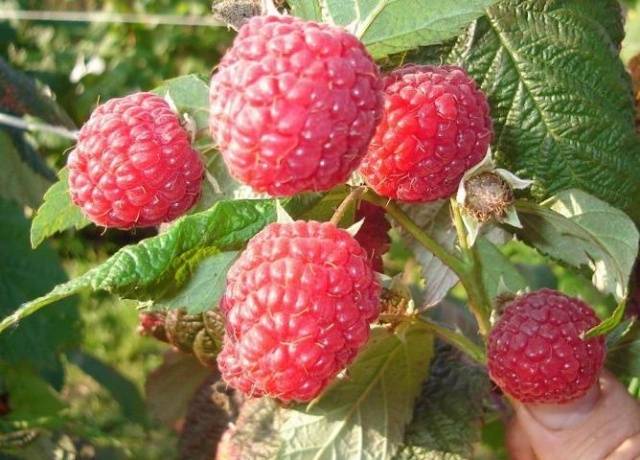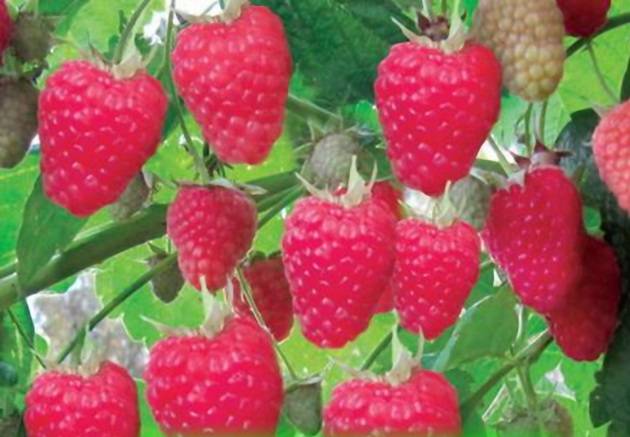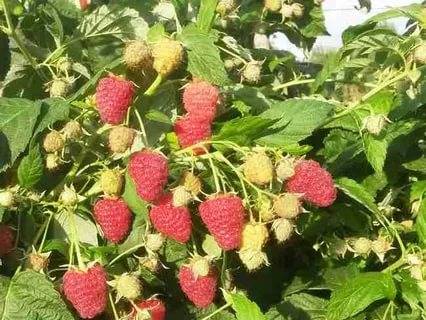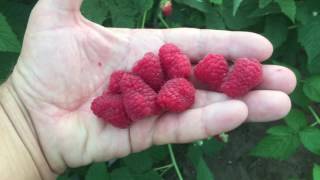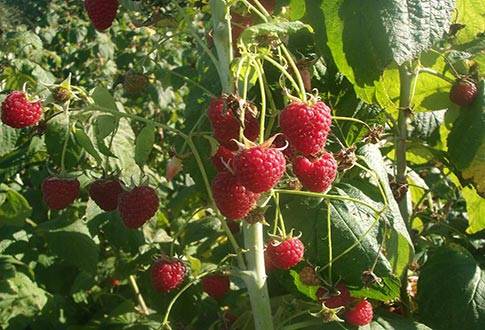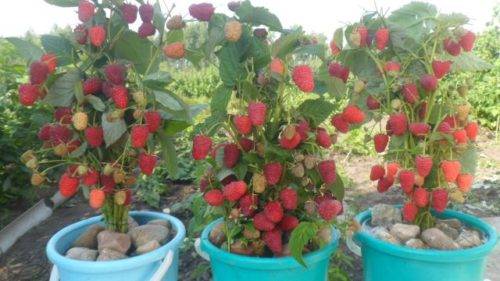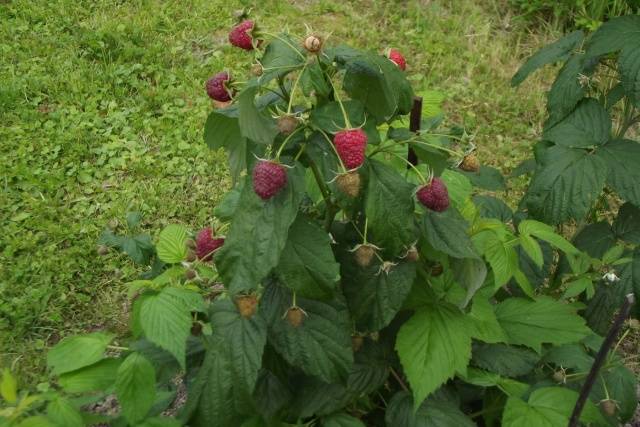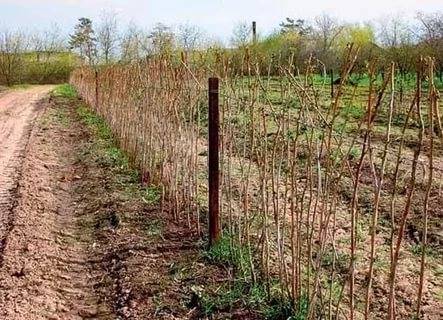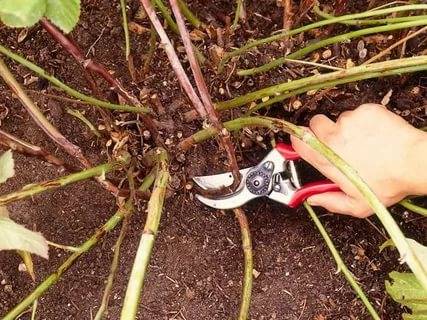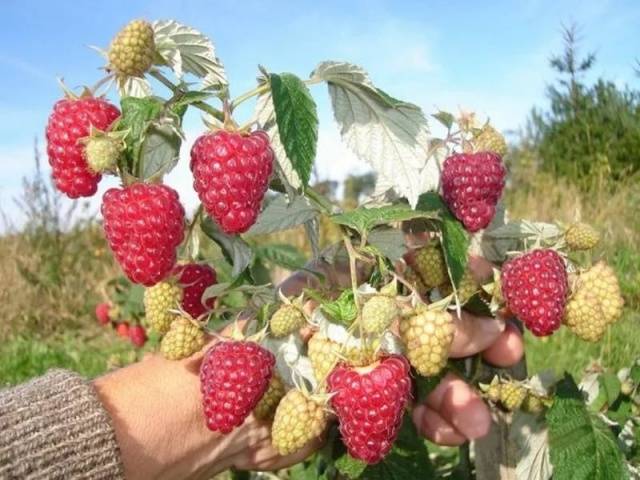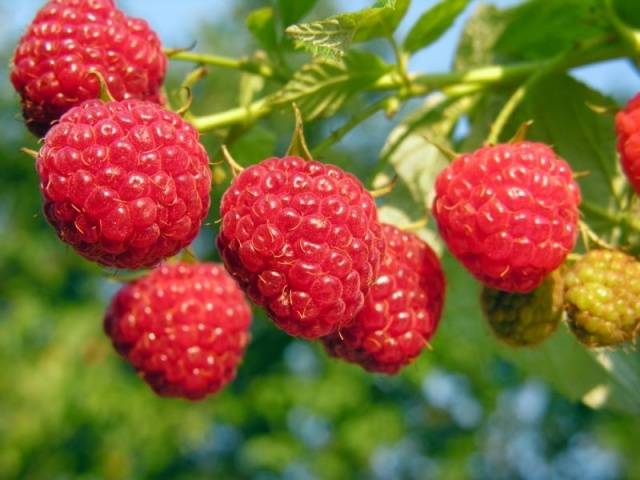Content
In recent years, remontant varieties of raspberries have become widespread. They attract with their simplicity, compactness of the bushes and excellent taste. Description of the Firebird raspberry variety, photos and reviews testify to its excellent species characteristics and popularity among gardeners.
Raspberry The Firebird forms stems during the season and gives an excellent harvest of large bright berries that form a lush plumage on spreading bushes and attract with their beauty and aroma.
Description of the variety
More and more often, remontant raspberries appear in our gardens. While retaining the useful properties of conventional varieties, it also possesses new, attractive qualities:
- resistance to common pathologies;
- the ability to bear fruit twice per season;
- greater adaptability to weather conditions.
One of the most popular today is the Firebird variety of remontant raspberries.
Due to their low spreading, the raspberry bushes of the Firebird variety do not take up much space. They are formed from annual shoots, which grow up to almost 2 m per season. Therefore, it is recommended to tie raspberries to a support. Due to its ability to form intensive shoots, each bush of the Firebird raspberry forms up to several stems. Shoots up to the middle are covered with soft and thin thorns and green leaves with slight pubescence and toothed border.
Fruit shoots have a small waxy bloom and actively branch up to 2-3 branches. The variety stands out for its resistance to the most common diseases or pests.
Raspberry Firebird feels great in the climatic features of the middle zone, therefore it is highly valued by gardeners of the Central region. With proper care, it grows well in the southern regions. Other qualities of the remontant culture are also attractive:
- shoots are characterized by a significant area of fruiting - it takes more than half the length of the stem;
- bright conical fruits are distinguished by a dense structure and size, their weight reaches 4.5-6 g;
- fruits have a glossy surface and juicy pulp, they are suitable for consumption fresh, frozen, as well as after processing;
- from other remontant varieties, this species differs in a sweeter taste - the sugar content of the berries is on average more than 5.5%, the content of ascorbic acid is more than 40%;
- the yield from one bush can exceed 2 kg, from 1 hectare more than 13-14 tons are obtained;
- after ripening, the berries do not fall off the bushes for a long time and are not damaged during transportation.
In the description of the Firebird raspberry, some disadvantages are also indicated, the main one being late ripening - the end of the summer season. In cold regions, where frosts begin early, a loss of up to 30% of the crop is possible because of this. Too hot and dry summers also have an adverse effect - the result can be crushing of berries, their shedding, loss of productivity. However, with intensive irrigation or organization of drip irrigation, mulching the soil, the yields of the Firebird raspberry can be even higher than that of conventional varieties.
Agrotechnics
The cultivation of raspberries of the remontant variety Firebird is characterized by certain features that should be taken into account in order to obtain high returns.
Choosing a site for planting
The timing of planting raspberries Firebird depends on local climatic conditions:
- in the southern regions, autumn plantings are preferable;
- in colder regions, raspberry bushes will take root better in spring, but they need to be planted only after the end of the night frost.
A site for planting bushes is chosen taking into account some parameters:
- it must be protected from the winds;
- sufficient illumination of the bushes is important;
- raspberries The Firebird loves fertile soil rich in organic compounds;
- groundwater should not rise above 1.5 m;
- with increased acidity of the soil, it is limed when digging;
- the territory of the area allocated for the raspberry tree must be thoroughly cleaned of weedsit is especially necessary to remove the rhizomes;
- when planting raspberries in spring, the Firebird must be prepared in the fall - add organic and mineral fertilizers to the holes and sprinkle with earth.
Landing options
The Firebird repair raspberry can be planted in different ways:
- with the bush method, a gap of up to 1.5 m is left between the seedlings, and the row spacing should be at least 2.5 m;
- if planting is carried out in a trench manner, then about 0.5 m is left between the bushes, with the expectation that each seedling will give 5-6 shoots;
- to avoid shading the bushes, you need to arrange the rows of raspberries from north to south.
Landing
Before planting, the Firebird raspberry seedlings are stored in a cool place at a temperature of 0 to +2 degrees so that the shoots do not begin to germinate. During transportation, their roots are kept in a clay mash to prevent them from drying out. Half an hour before planting, the roots of the seedlings are placed in water so that they are sufficiently saturated with water. When planting, the seedlings are buried up to the root collar.
Immediately after planting the Firebird raspberry, the following work must be carried out:
- trimming the aerial part up to 30 cm;
- watering seedlings - the norm for each bush is half a bucket;
- mulching the soil around raspberry seedlings - peat, straw, compost can be used as mulch, its layer should be at least 10 cm.
During the autumn work, mulch is dug up and embedded in the beds, becoming an additional top dressing for the seedlings.
Pruning
Annual pruning of raspberries of the Firebird variety is mandatory - in the fall, two-year-old shoots are mowed without leaving hemp. Therefore, there is no need to cover raspberry bushes for the winter. In spring pruning, diseased or damaged branches, weak shoots are removed. If the tops of the shoots are frozen, then they need to be cut off to healthy buds. Raspberry fruits will turn out to be larger if you make light pruning of the tops of the shoots. In colder regions, you can speed up the ripening times of the Firebird raspberry variety by covering the soil around its seedlings in spring. With this technique, you can get a harvest of fragrant berries in July.
Annual shoots of raspberries in the fall, before the onset of frost, bend to the ground, and the fallen snow cover will reliably preserve them until spring.
Garter bushes
The tall shoots of the Firebird raspberries twist and intertwine, making it difficult to care for them, so they definitely need support. It is desirable that it be high enough - the shoots should not exceed the height of the support by more than 20 cm. Otherwise, they will break under gusts of wind. 2-3 rows of wire are stretched between the supports with an interval of 15-20 cm, to which raspberry shoots are tied. The lowest row is set at a height of about half a meter from the ground.
Top dressing
In early spring, when the snow is melting, the Firebird remontant raspberries need to be fertilized with nitrogen compounds, for example, urea. Nitrogen will enable the plant to grow and develop rapidly. Further, during the formation of ovaries, fertilizing of the bushes is carried out with mineral salts.
Testimonials
The Firebird raspberry variety has a lot of positive reviews, thanks to its best qualities.
Conclusion
Repaired raspberry Firebird with competent agricultural technology will become a magnificent decoration of the garden, delighting with high yields of juicy, fragrant berries
